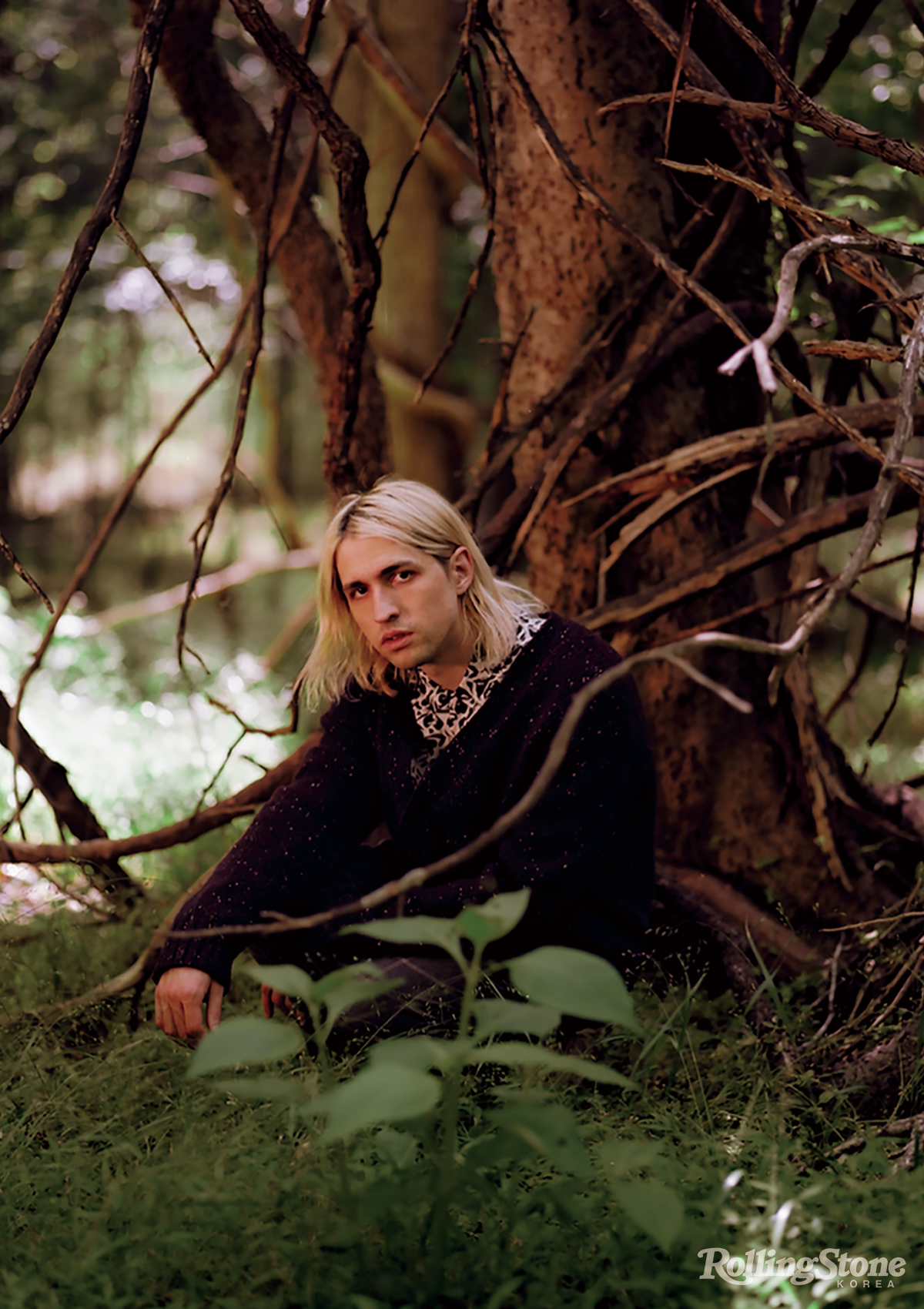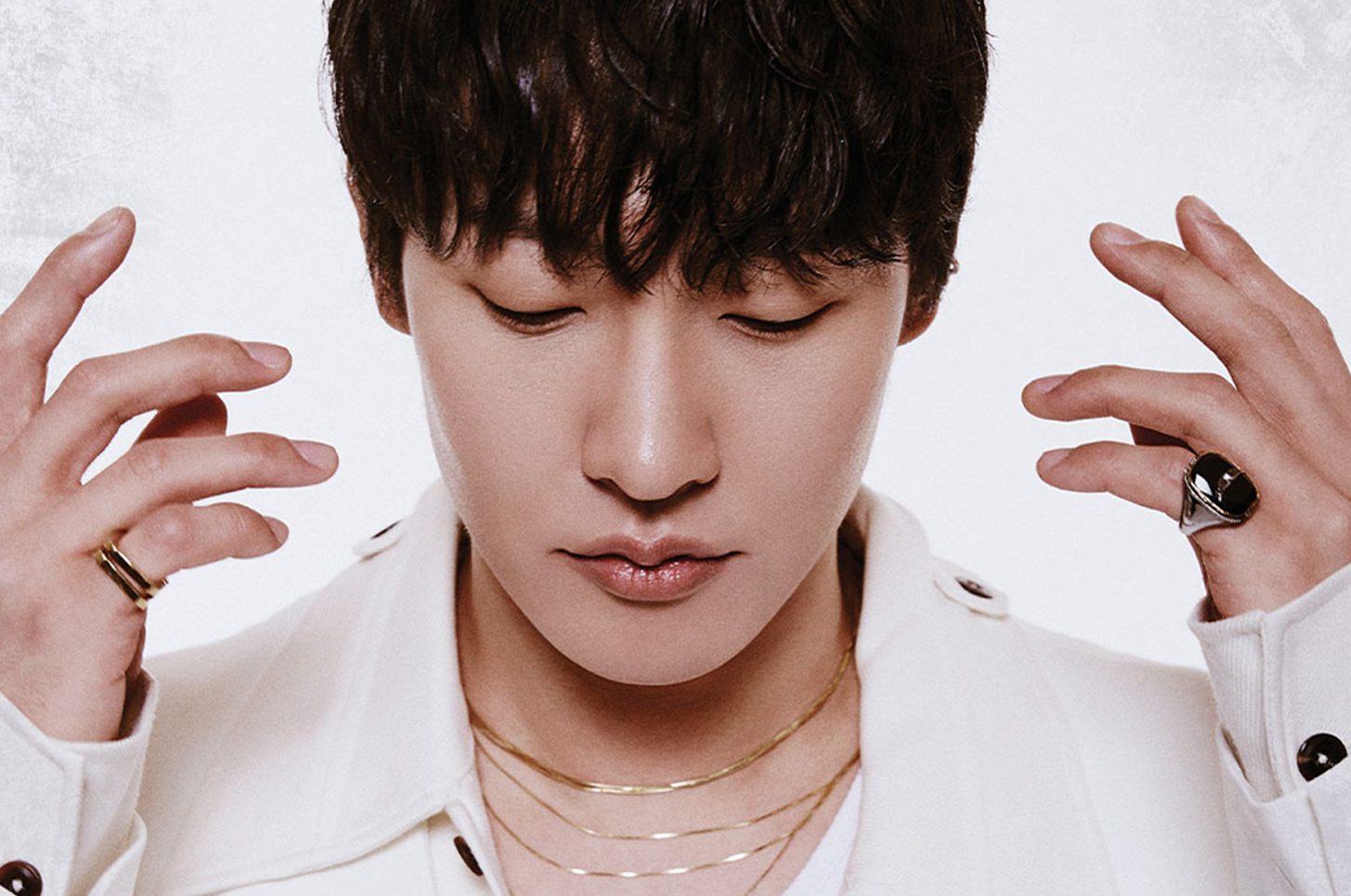Written by Sarah Carr & Jon Wong
2011년으로 돌아가 포터 로빈슨의 팬들에게 그가 앞으로 10년 후 어떤 종류의 음악을 만들지 물어본다면, 아마 예상이 빗나갈 가능성이 크다. 그의 데뷔곡 ‘EP Spitfire’는 일렉트로닉과 덥스텝이 어우러진 노래로, 다른 파티 음악에도 큰 영향을 미쳤다. 그러나 정작 포터 본인은 벽에 마주했다고 느꼈다. EDM이 전 세계적으로 폭발적인 인기를 끌고 있는 동안, 포터는 이미 그의 예술성을 크게 변화시키고 대체할 수 있는 일렉트로닉 요소를 실험하고 있었다. 그는 클럽을 정복하기 시작했을 때부터 더 많은 음악을 시도하고 표현하기를 열망했고, ‘밤의 유흥’에만 어울리는 아티스트로만 분류되고 싶지 않았다고 한다.
포터가 발표한 ‘Cue Worlds’는 단연 일렉트로닉 음악계에서 가장 혁신적이고 영향력 있는 앨범 중 하나이다. 2014년 그가 출시했던 ‘Cue Worlds’는 미국의 일렉트로닉 음악 팬들에게 마치 마른하늘의 단비와도 같았다. 빅룸(Big Room) 트랙과 스타디움에 걸맞은 노래가 과도하게 많았던 때였기 때문에 포터의 잔잔하고 실험적인 음악은 많은 이들에게 활기를 불어넣어 주었다. 예술가로서의 그의 발전은 진실하게 느껴진다. 이제 이 아티스트는 두 번째 앨범 ‘Nurture’를 발매하여 이전 음악과 다르면서도 포터 특유의 사운드를 포함한 14개 트랙을 선보였다.
가족과 함께 노스캐롤라이나 채플힐에 사는 포터는 자택에서 나와 롤링스톤 코리아와 인터뷰를 진행했다. 그는 예술가로서 처음 경험했던 것 몇 가지와 과거의 경험이 앨범 ‘Nurture’의 비전을 형성하는 데 어떻게 도움을 주었는지를 회상했다.
포터가 처음으로 음악에 끌리게 된 계기는 그가 일렉트로닉 트랙을 처음 만들기 시작한 이유와도 밀접하게 관련이 있다. 그는 "처음으로 음악에 관심을 두게 되었을 때라... 저는 채플힐이라는 마을에 살았어요. 어렸을 때 자동차로 ‘제임스 테일러’라고 불리는 다리를 지나가고 있던 때였죠. 그때 라디오에서 바네사 칼튼의 ‘A Thousand Miles’가 나오는 거예요. 그때 11살이었을 거예요. 그리고 저는 처음으로 이렇게 느꼈죠. 사춘기를 맞은 소년이 어떤 여자애를 처음 보고 정말 예쁘다고 생각했을 때 같은 느낌말이에요. 음악을 듣고 그렇게 느꼈어요. 마치 음악적으로 새롭게 눈을 뜬 셈이죠. 생전 처음 느껴보는 방식으로 감동을 하였어요. 그 이후에 댄스 댄스 레볼루션(DDR) 게임에 나오는 음악을 듣고 나서 저도 음악을 만들고 싶다고 생각했죠. 이런 일렉트로닉 트랙을 만드는 게 너무 멋지다고 생각했어요. 리듬 게임을 위해 음악을 만드는 사람들이 마치 슈퍼스타 같아 보였어요. 그 후, 저는 다프트펑크(Daft Punk)에 크게 빠져들었습니다. 그때부터 제가 진짜로 일렉트로닉 음악을 만들어야겠다고 결심했어요."라고 말했다.
당시 아티스트로서 포터의 발전은 시작에 불과했지만, 팬이 빠르게 쌓이는 것에 적응하는 데에는 다소 시간이 걸렸다고 한다. 그는 "술을 마시기에는 너무 어렸던 제가 한 손에 레드불을 들고 클럽에 들어갔는데, 완전 무명 아티스트였던 저를 수백 명의 사람이 알아보고 제게 다가오는 거예요. 정말 이상한 경험이었죠. 18살이었던 제게는 정말 기이하고 신기한 느낌이었고요.”라고 설명했다. 포터는 관중의 뜨거운 열정으로 잘 알려진 한국에서 처음 공연을 한 것이 매우 재미있었다고 회상한다. 그는 "내한했을 때 가장 먼저 기억나는 건 제가 공연을 하는 축제 장소의 텐트에서 인터뷰했던 때예요. 제가 어렸을 때 태권도를 했었거든요. 그리고 기자 앞에서 한국어로 10까지 셌어요. 제가 왜 그렇게 했는지는 모르겠지만, 아마 다 틀리게 발음했을 거예요. (웃음)

또 중요한 건 한국 관중에서 얻을 수 있는 에너지가 엄청났던 거예요. 그거에 대해 다른 음악가, 연주자, 그리고 DJ를 하는 다른 친구들과 이야기했거든요. 한국에서 공연을 마친 다음 무대에서 내려와 같이 이야기를 하는데, 다들 ‘방금 공연이 내 인생에서 최고가 아니었을까?'라고 하는 거예요. 한국 관중분들이 항상 공연의 1천만 퍼센트 정도로 반응을 해주는 덕에 그렇게 느끼게 돼요."라고 전했다.
포터가 아티스트로 활동하기 시작한 지 10여 년이 되었을 즈음, 그는 그만의 시그니처 사운드가 다양하고 유명해졌다. 최근 포터는 직접 노래를 부르면서 본인이 쓴 음악을 더 업그레이드했다. 그가 처음으로 본인의 음악을 위해 노래를 부른 것은 그가 작곡을 더 깊이 탐구할 수 있는 영감을 주었다고 한다. 포터는 “제 음악에서 직접 노래를 부른 적이 없었어요. 주로 인스트루멘탈(instrumental) 음악이나 게스트가 노래를 부르는 음악을 만들어왔어요.
그런데 어느 순간 좀 다른 시도를 해보고 싶다고 생각을 했고, DJ보다는 송라이터로서 가사를 만들어서 노래를 부르고 싶었어요. 변화하는 데 좀 시간이 걸리긴 했지만, 2014년에 나온 앨범 ‘Cue Worlds’에서 제가 살짝 노래를 부르긴 했어요. 여기서 제가 시도했던 것은 로봇 여성 보컬과 제가 듀엣을 하는 거였죠. 즉, 두 명의 보컬이 있는 거예요. 보컬 중 [하나는] 보컬로이드(Vocaloid)라는 소프트웨어로 만들었어요. TTS(Text To Speech) 소리 합성기와 비슷한데, 대신 노래를 부르는 거예요. 그게 바로 보컬로이드예요. 인간과 로봇이 전화상으로 대화를 하는 듯한 노래였는데, 사실 전 노래를 잘 못 불러요. 그래서 가성, 흉성으로도 불러보고, 소리 지르는 식으로도 노래를 부르면서 거의 천 번 정도 제 목소리를 녹음했어요. 그다음에 제 목소리처럼 들리지 않을 정도로 모든 소리를 레이어링하고 믹스를 했어요. 당시에는 그게 더 편했으니까요.
그 음악을 만들고 나서 ‘와, 이거 생각보다 어렵지 않은데? 내가 만든 노래를 내가 스스로 불러도 아무도 나를 막지 못하겠구나’라고 생각했어요. 이젠 제가 그 시도를 하길 잘했다고 생각해요. 제 최근 앨범인 ‘Nurture’에서 소개하는 음악은 제가 작곡하고 제가 직접 노래를 부른 게 대부분이거든요. 정말 대단한 경험인 것 같아요. 더욱 많이 표현하고 다양한 주제와 관련해서 진실을 이야기하고, 솔직하고 직설적이면서도 속마음을 털어놓는 방식으로 제 가슴 속 깊이 있는 감정을 공유할 수 있을 것 같아요.”라고 전했다.
PHOTOGRAPHS BY Julien Sage
Exploring Porter Robinson’s “Firsts”
Written by Sarah Carr & Jon Wong
If you were to ask Porter Robinson fans back in 2011 what type of music he’d be making in the next ten years, everyone would probably guess incorrectly. His debut EP Spitfire was a compilation of Electro and Dubstep-influenced party anthems that hit hard - but for the artist himself, he was hitting a wall. While EDM was practically exploding in popularity all over the globe, Porter was already experimenting with more alternative electronic elements that would cause his artistry to shift in a major way. As soon as he had begun conquering the club scene, he was already eager to try and express more in his music and surpass being pigeonholed as a strictly nightlife-appropriate artist.
Cue Worlds, arguably one of Electronic Music’s most transformative and impactful albums. When Porter released Worlds in 2014, it couldn’t have come at a better time for fans of Electronic genres in the United States. Big Room tracks and stadium-worthy bangers were becoming overplayed, and Porter experimenting with ambient and experimental sounds was revitalizing to many. His development as an artist felt effortlessly authentic. Now the artist has released his Sophomore album Nurture, a 14-track effort that feels excitingly different, but still characteristically unique to Porter’s sound.
Speaking to Rolling Stone Korea out of his family home in Chapel Hill, North Carolina, Porter Robinson recalls some of his first-time experiences as an artist and how his past has helped him shape his vision for Nurture.
The first time Porter really felt drawn to music is explanatory of how he began producing electronic tracks. “The first time that music ever caught my attention...well, I live in a town called Chapel Hill. And I remember we were driving over this bridge called the James Taylor bridge, and the song “A Thousand Miles” by Vanessa Carlton came on the radio. I must have been 11 years old. And I remember for the first time, it was sort of like when you’re hitting adolescence and you notice a girl for the first time and think she’s really pretty.
That was how I felt with music. It was like I had this musical awakening of thinking. For the first time, it struck me in a really different way. After that, I think what made me want to make music was all of the music I heard in the game Dance Dance Revolution. I just thought it was so cool that people were making these electronic tracks. They just seemed like superstars to me, the people who were making music for rhythm games. After that, I got really into Daft Punk in a major way.
I think that was when I was like, okay, now I HAVE to make electronic music.” While Porter’s evolution as an artist was only just beginning, the shock of developing a fan base so quickly was something he needed time to adjust to. “It was really strange for me to go from absolute anonymity to walking inside of this club with a Red Bull in my hand, too young to drink, and I was suddenly surrounded by hundreds of people who recognized my face. It was a very bizarre and unprocessable feeling for an 18 year old.” He recalls his first time performing in Korea being exhilarating, as the energy of the crowd is globally renowned. “One of my very first memories of being in Korea was, I remember doing an interview in a tent at the festival I was playing. And I had taken Taekwondo when I was a kid. And I demonstrated counting to ten in Korean, for the interviewer. I don’t know why I chose to do that, I’m sure my accent was all off (laughs).
But the other main memory I have of being in Korea is just the extreme energy that you get back from the crowd in Korea. And I’ve discussed this before with so many of my other friends who are musicians and performers and DJ’s. We’ll come off stage after a show in Korea, and we’ll talk to each other and say things like ‘did I just do the best show of my life?!’ You always feel like that in Korea because the crowd always gives you ten million percent.” Fast forward a decade or so from when Porter began, and he has now created a signature sound that is as diversified as it is distinguished. One way that Porter has recently enhanced his music is by singing his own lyrics on Nurture. His first time singing was an eye-opening experience that inspired him to explore songwriting further.
“So I never used to sing on my own music, I was mostly making instrumental music and songs with guests on it. And so at some point I realized I sort of wanted to pivot, and write these lyrics and sing these songs to become more of a songwriter and less of a DJ. It was sort of a slow transition, but the first little hint of it was on my song “Sad Machine” from my 2014 album Worlds. The idea there was that there was going to be a duet between me and this robot girl. So there’s two vocals. [One of] these vocals are produced by the software Vocaloid. Imagine a speech synthesizer that’s text-to-speech, except it sings...that’s what Vocaloid is. I wanted to do this human-robot call in response, but I wasn’t much of a singer.
So I sort of embraced this thing where I recorded myself singing a thousand times in Falsetto, chest voice, tried screaming it, everything. And I just layered it together and blended it until it didn’t sound like me, which I was comfortable with at the time. But I remember thinking ‘wow, this isn’t as hard as I thought. I can just sing on my songs and no one can stop me from doing this.’ And I’m so glad I went down that path. Because my most recent album Nurture is almost entirely me as a songwriter and singer. And it’s been a really amazing thing for me to explore. I feel like I can express so much more and tell the truth about all these various subjects, and share my deepest feelings on things in a way that feels honest and straightforward and vulnerable.”
PHOTOGRAPHS BY Julien Sage










